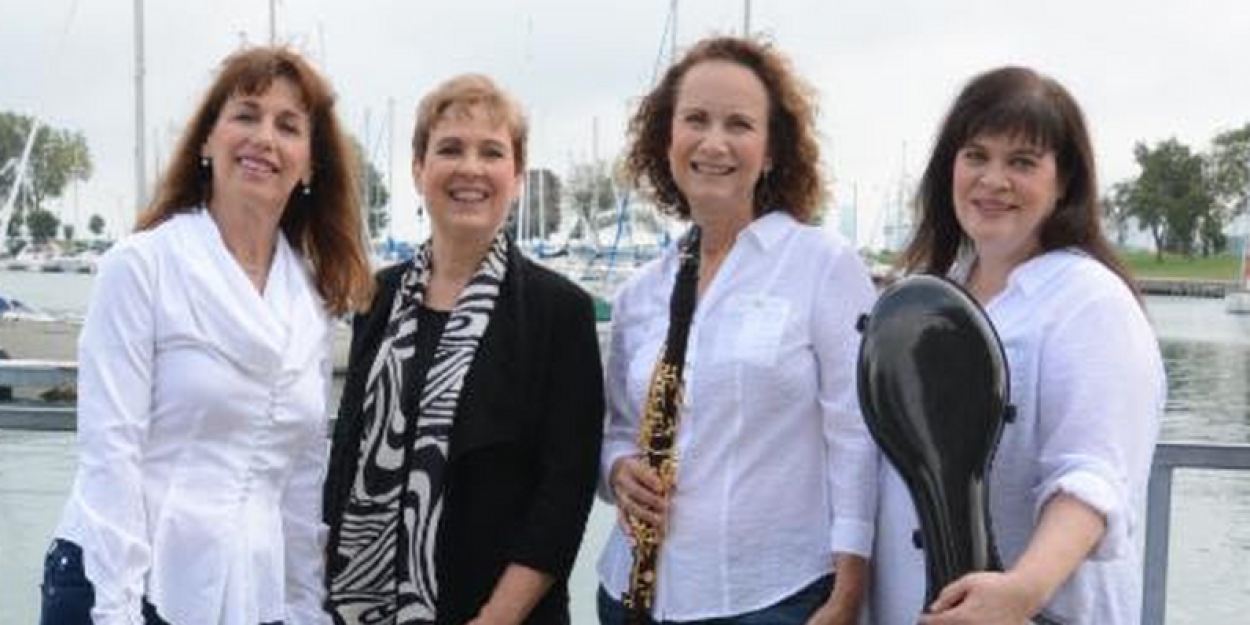Orion's 31st Season Continues With POWERFUL MASTERPIECES In November and December
Program features works by two 20th century composers: Samuel Coleridge-Taylor and Dmitri Shostakovich.

The Orion Ensemble continues its 31st season with “Powerful Masterpieces,” welcoming back guest violist Stephen Boe and guest violinist Mathias Tacke, who join the Orion musicians for a program featuring works by two 20th century composers: Samuel Coleridge-Taylor and Dmitri Shostakovich.
Performances takes place at three venues: Nichols Concert Hall in Evanston (Nov. 26), PianoForte Studios in Chicago (Nov. 29) and New England Congregational Church in Aurora (Corrected date: December 3). The Chicago performance also will be available via livestream.
"Our audiences will be taken on a truly soulful journey with the remarkable pairing of the music of Samuel Coleridge-Taylor and Dimitri Shostakovich,” said Orion clarinetist and Executive Director Kathryne Pirtle.
Samuel Coleridge-Taylor (1875–1912), was a composer of the late Romantic era whose background included both Britain and Sierra Leone on the southwest coast of Africa. His music is at once melodious, is immediately understandable and appeals to a wide range of musical tastes. His Moorish Dance for Piano, Op. 55, has been described as similar in style to a Chopin Scherzo, with imagery of forest scenes. The central trio section offers additional contrasts. Composed in 1904 (the same year the composer met President Theodore Roosevelt), this charming work provides a wonderful introduction to the piano works of this lyrical composer.
Coleridge-Taylor composed his Quintet in F-sharp minor for Clarinet and String Quartet, Op. 10, in 1897. Always an admirer of Brahms, he heard the composer's final chamber piece, the Clarinet Quintet, Op. 115, and immediately decided to compose one of his own, which was highly acclaimed and even played by many musicians who knew and worked with Brahms.
Dmitri Shostakovich (1906–75) suffered a severe creative and professional setback in 1927 when he did not succeed in winning an honorable place in the First International Chopin Piano Competition. Reluctant to return to the concert stage, Shostakovich concentrated on composition and completed his Preludes for Piano, Op. 34, in March 1933. He premiered the works in May of that year and established himself again as a concert pianist. Shostakovich often commented that these preludes have a “violinistic” presence.
Shostakovich composed his Quintet in G minor for Piano and String Quartet, Op. 57, in 1940 for the acclaimed Beethoven String Quartet. Premiering this work with the Quartet on November 23, 1940 at the Moscow Conservatory, he experienced immediate success and was awarded the Stalin Prize in 1941.
The livestream from Chicago will be available free (donations are welcome at orionensemble.org/donate) on Orion's YouTube channel, which will also host a recording of the performance for a limited time.
Orion's 2023–24 season continues with “Parlez-vous français?” in April and “Tribute to Paquito D'Rivera” in May. For more information, visit orionensemble.org.
The Orion Ensemble performs “Powerful Masterpieces”
Sunday, November 26 at 7:30 p.m. at
Nichols Concert Hall, 1490 Chicago Avenue, Evanston;
Wednesday, November 29 at 7:30 p.m. at
PianoForte Studios, 1335 S. Michigan Avenue, Chicago;
and Sunday, December 3 at 7 p.m. at
New England Congregational Church, 406 W. Galena Boulevard, Aurora.
Tickets are $30, $25 for seniors (65+) and $15 for students (13+);
children 12 and younger are free.
Flexible four-ticket subscriptions, valid for any date or venue,
are $110, $90 for seniors, $50 for students.
Tickets are available at 630-628-9591 or info@orionensemble.org.
All programming is subject to change; for information visit orionensemble.org.
The Orion Ensemble, winner of the prestigious Chamber Music America/ASCAP Award for Adventurous Programming for its critically acclaimed millennium celebration “An Inside Look at Contemporary Music,” Orion features a roster of four acclaimed musicians—Kathryne Pirtle (clarinet), Florentina Ramniceanu (violin), Diana Schmück (piano) and Judy Stone (cello)—who have performed throughout North America, Europe and Asia, as an ensemble and individually in solo, orchestral and other chamber music roles. The Chicago Tribune called Orion “one of Chicago's most vibrant, versatile and distinctive ensembles,” and the Chicago Sun-Times said Orion is “what chamber music should be all about: Individual virtuosity melded into a group personality.” The Orion Ensemble is supported in part by grants from the Gaylord and Dorothy Donnelley Foundation, the John R. Halligan Charitable Fund, the Illinois Arts Council, the Arts Tour Fund of the Illinois Arts Council, the Farny R. Wurlitzer Foundation Fund and generous donations from its patrons.
Comments
Videos

